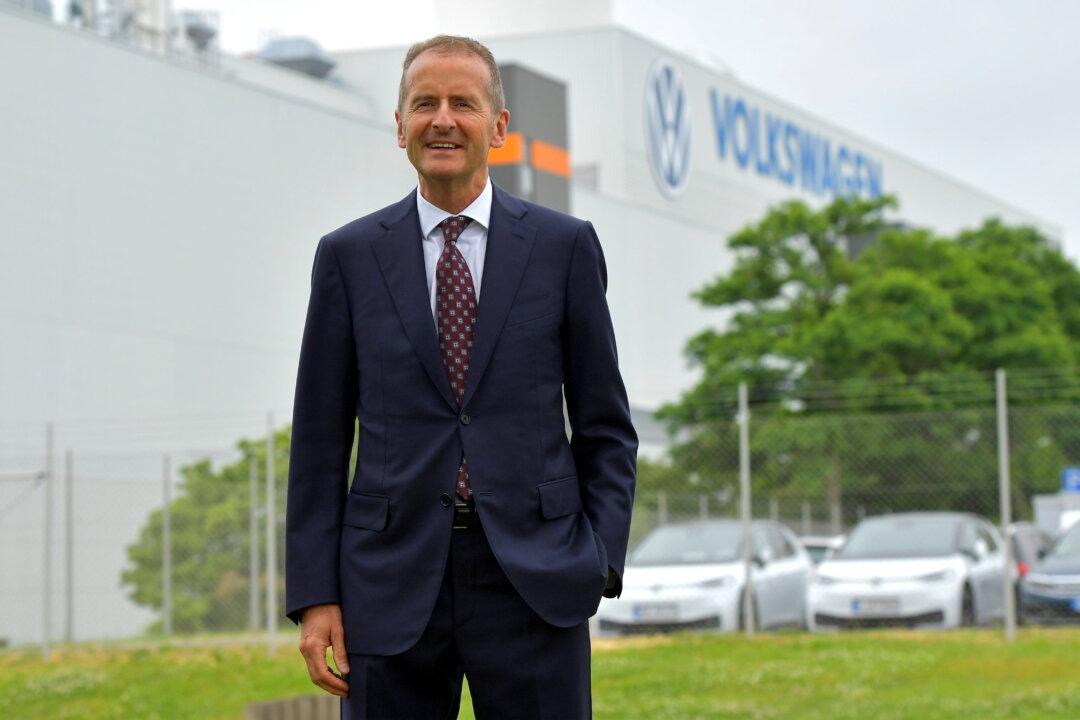Tesla, the world’s leading electric vehicle manufacturer, is moving at twice the speed than its competitors, said Herbert Diess, CEO of Volkswagen AG, the world’s second-largest EV manufacturer, at a June 1 conference at the CAR Symposium conference in Bochum, Germany.
Tesla has managed to secure its position despite factory shutdowns, a lack of computer chips, and other supply chain constraints since the pandemic.





